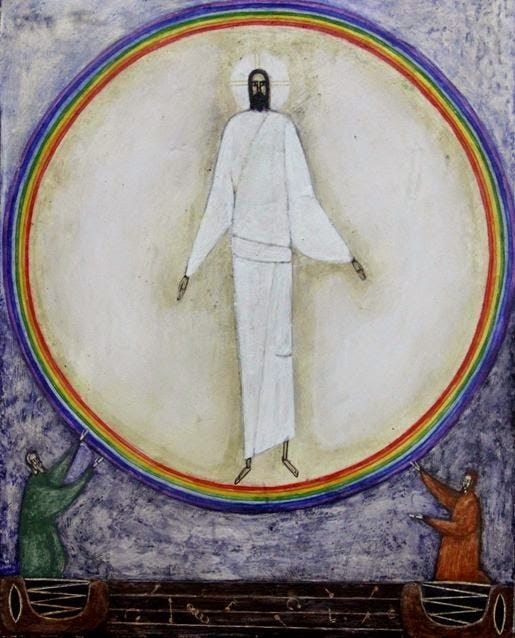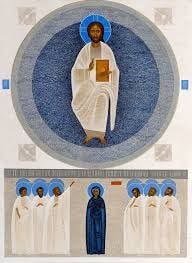At Pentecost, the Spirit Unites the Head with his Body
The church as Christ’s body is not a freaking metaphor
It’s common if cringey for local churches to celebrate Pentecost with birthday cakes and candles. In my very first parish, the congregation had a practice of singing “Happy Birthday” to the church on Pentecost. I gave that tradition a hasty and undignified funeral. In hindsight, though, I think there is accidental and unexamined wisdom in the cheesiness of flame orange sheet-cakes shaped like tongues.
The wisdom comes into view only by asking what may appear to be inconceivable and nonsensical questions.
What if the Father had raised from the dead not only the servant of Israel, Jesus Christ, but had raised also all the dead saints of Israel with the Son in the Spirit?
What if Easter had been the End and so no Pentecost and with it the revelation of “the Spirit’s face.”
If God had raised Israel along with her messiah and left Jesus’s disciples to wait for his return, then should we say that the Spirit would have ascended with the Risen Son?
The questions and the possibilities they pose about Pentecost point to what Robert Jenson characterizes as “the dramatic necessity” of Pentecost within God’s history.
The danger in understanding Pentecost merely as the church’s birthday is that it’s altogether too ordinary and natural. Creatures are birthed every moment of every day. However, the wisdom in the very same construal is the acknowledgement that with Pentecost something that heretofore was not now is.
With Pentecost something that heretofore was not now is.
Karl Barth suggests the church starts with the thief at the Lord Jesus’s side who receives the promise of paradise. Many others, in positing Mary Magdalene as the first preacher and apostle (“I have seen the Lord!”) likewise place the advent of the church prior to Pentecost. The scriptures instead show a discontinuity between the post-Easter community of disciples and the church that is subsequent to the Spirit’s outpouring at Pentecost. As Robert Jenson writes:
“Pentecost is the Holy Spirit’s particular, personal initiative to delay the Parousia (the second coming).”
When the Holy Spirit descends eschatologically, as prophesied by Joel, but without raising the dead into the triune fellowship and ending this age, as anticipated by those same prophets, the time for the church is opened. A consistent critique of Western theology by the East centers precisely on Pentecost. Catholics and Protestants largely fail to acknowledge what the Orthodox Church sees as straightforwardly the witness of scripture.
Namely:
Pentecost is an intervention of the Holy Trinity that is new over and against the Resurrection and issues from the third person of the Godhead.
Pentecost is a work of the Spirit not separate from the work of the Son but nonetheless distinct from it.
Keep reading with a 7-day free trial
Subscribe to Tamed Cynic to keep reading this post and get 7 days of free access to the full post archives.





